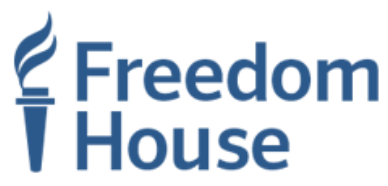FOR IMMEDIATE RELEASE

Washington - February 4, 2021 — In response to the suspension of the Democratic Governance Facility and other recent developments in Uganda, Freedom House issued the following statement:
“We are alarmed by the decision to suspend the Democratic Governance Facility,” said Jon Temin, director of Africa programs at Freedom House. “This fund is critical to the operations of many Ugandan civic organizations mandated to advance the rule of law and good governance and some government bodies, including the Uganda Human Rights Commission. Through this action, the government of Uganda is standing in the way of progress driven by Ugandans themselves.”
“This is just the latest concerning development for democracy in Uganda,” Temin continued. “Most notably, the January 14th elections were marred by the uneven application of COVID-19 restrictions, limitations on civic activity, and excessive use of force by the state. The government severely curtailed the flow of information and transparency of the process by shutting down the internet for five days and arresting and detaining some Ugandan election observers. Some social media apps remain blocked and criminal charges against local election observers remain pending, despite having been accredited for observation by the Electoral Commission itself.”
“Allegations by the political opposition of fraud, electoral malpractice, and intimidation during the election process are now before Uganda’s Supreme Court. In other recent contentious elections, such as in Kenya and Malawi, the courts have conducted fair reviews of electoral challenges in order to secure the legitimacy of the electoral system and ensure that the rights of citizens are respected. The Ugandan Supreme Court should follow these examples by conducting a transparent, nonpartisan review of the case before it. All political actors should pursue nonviolent avenues for resolving disagreements.”
Background:
The Democratic Governance Facility (DGF) was established in 2011 by the European Union, United Kingdom, Denmark, Ireland, Austria, Sweden, the Netherlands, and Norway. The DGF provides financial and technical support to both state and nonstate actors in areas such as democracy, human rights, and rule of law. On January 2nd, President Museveni ordered the suspension of DGF activities, stating that its funds were “used to finance activities and organizations designed to subvert [the] Government under the guise of improving governance.”
Uganda’s most recent election cycle was characterized by violence and suppression of the political opposition. For instance, Robert Kyagulanyi, better known as Bobi Wine, was arrested at a campaign rally in November for violating COVID-19 restrictions. In the following weeks, over 50 people were killed as security forces sought to quash demonstrations sparked by Wine’s arrest. On the eve of the elections, authorities disrupted internet access nationwide, prompting the opposition to accuse the government of limiting its ability to share evidence of electoral fraud. The government also prevented foreign observers from monitoring the contest , denied nearly all accreditation requests from Ugandan civil society organizations seeking to participate, and froze the bank accounts of several prominent organizations involved in election monitoring and good
governance.
Recently, in Kenya and Malawi, courts acted on allegations of electoral irregularities in highly contested elections, setting a precedent for transparent and independent judicial review of elections across the continent. In 2017, the Kenyan Supreme Court nullified the results of the presidential election, requiring that a new election be held within 60 days. The justices noted that Kenya’s Independent and Electoral Boundaries Commission had “committed irregularities and illegalities in the transmission of results.” Last year, Malawi’s Supreme Court upheld the Constitutional Court’s order to rerun the presidential election, which was successfully held that June. In its ruling, the court stated that reported irregularities were “not only serious but also troubling.”
Uganda is rated Not Free in Freedom in the World 2020 and Partly Free in Freedom on the Net 2020.
|